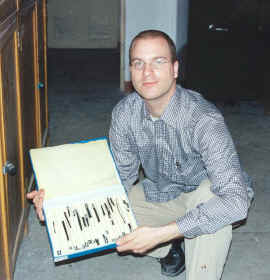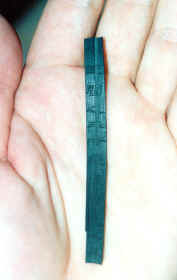|
|
The Date of the Proto-Wenzi |
|
|
|
Paul
van Els, Leiden
Through the ages, the authenticity of the Wénzi has been the topic of heated debate. Until the Táng dynasty, scholars readily accepted Ban Gù's claim that the text was authored by a disciple of Laozi. Later scholars disagreed, pointing out several elements in the text that verifiably postdate the 6th c. B.C.E., the alleged lifetime of the Daoist master. As a result, the Wénzi was branded a forgery. From the Sòng dynasty onwards, the Wénzi received little attention and became a marginalised text.
In 1973, a bamboo manuscript of the original Wénzi (see the ink characters visible against the charred strip in the photo above) was unearthed near Dìngzhou, Hébei province. The Dìngzhou discovery sent scholars of ancient Chinese philosophy into euphoria. It led to a re-evaluation of the Wénzi, which made the text an essential item of China's philosophical heritage and turned it from "a later forgery" into "an important pre-Qín work". Nonetheless, both the pre-Qín origin and the importance of the text remain open to discussion. In this presentation, I question the oft-read qualification of the Wénzi in post-Dìngzhou scholarship as "a pre-Qín work" and argue instead that the Wénzi was created at the beginning of the Hàn, probably under Liú Bang.
All lectures and abstracts posted on this site are Copyright © by their authors. 2 May 2003 / Contact The Project / Conferences Page |

